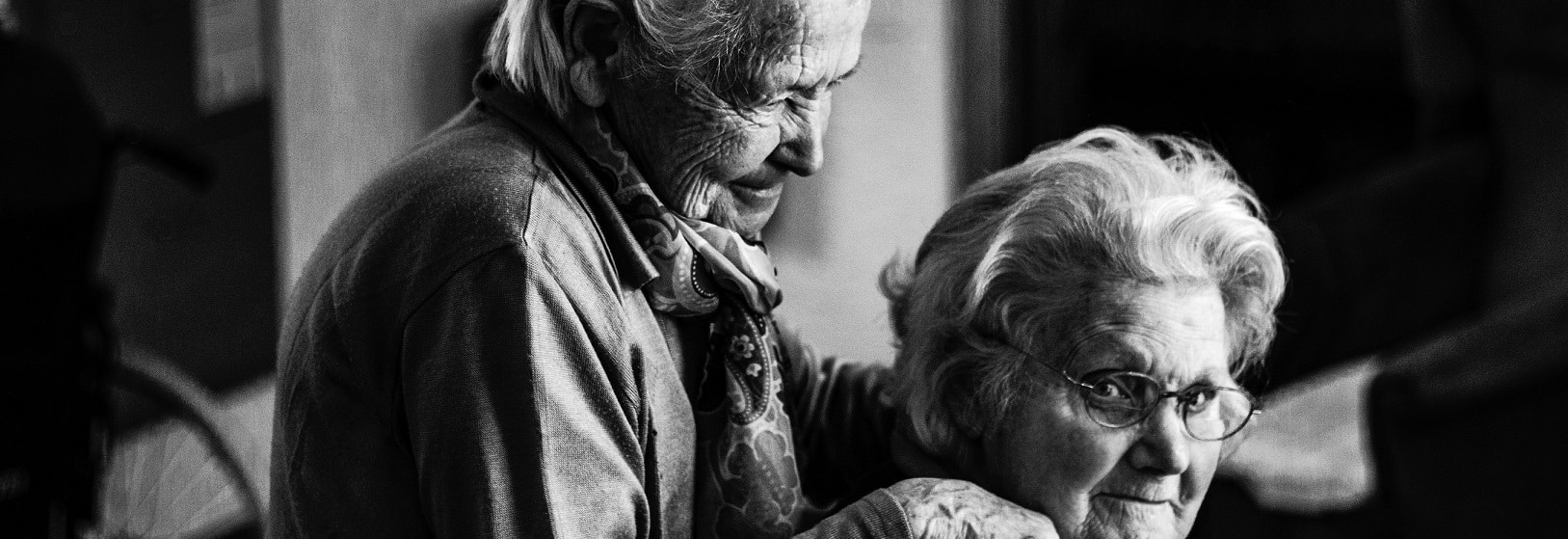
Photo by Eberhard Grossgasteiger on Unsplash
Among older people, those belonging to a minority to a larger extent experience additional challenges during the pandemic. On 17 May, International Day against Homophobia, we shed light on the situation of many older lesbians, gays, bisexuals, trans, or intersex people (LGBTI).
The COVID-19 pandemic poses complex challenges to many older people, both because older people are among the groups with the highest risks of severe outcomes if infected, but also because of a number of threats to their human rights. In addition, older LGBTI face additional risks of discrimination or exclusion on the ground of their sexual orientation, gender expression, gender identity or sex characteristics.
Both their physical and mental health at stake
LGBTI people have significantly lower health outcomes due to stigma and discrimination, biases held by healthcare providers, and lower socioeconomic status, often linked with lower access to comprehensive health insurance, and are therefore more vulnerable. Furthermore, past experience of discrimination, stigma, gatekeeping, misgendering, and non-consented procedures can deter LGBTI people from seeking medical care, leading to later entry into medical systems or no entry at all.
Research also shows that older LGBTI individuals have higher rates of specific conditions such as obesity, breast cancer, and human immunodeficiency virus (HIV). These underlying medical conditions increase the possibility for serious consequences if infected by COVID-19. This includes people living with HIV/AIDS who are not taking treatment, specifies the UK charity NAM.
LGBTI people of all ages have concealed or are concealing part of their identity by fear or threat of rejection or abuse. Being confined in environments, either in family or in residential care settings, where LGBTI people cannot freely express themselves can lead to important stress and can have long-term consequences on people’s physical and mental health. This may lead to an increase in domestic violence experienced by LGBTI people.
Increased barriers to access healthcare
When LGBTI people can find trusted health professionals, they are more likely to return to them regardless of the geographical distance. Especially intersex people, who often have histories of hypermedicalisation, complex medical histories, and non-consented procedures, often need to travel long distances to access specialised care with a trusted provider. In situations where these trusted professionals might be inaccessible, e.g. due to travel restrictions, the mistrust between LGBTI patients and health providers might lead LGBTI people not to seek the medical advice and care they need.
The UN Office of the High Commissioner for Human Rights recalls that:
“Specific efforts should be made to ensure that LGBTI people are not subjected to discrimination or fear retribution for seeking healthcare. Health services that are particularly relevant to LGBTI people should not be deprioritized on a discriminatory basis.”
A higher risk of social exclusion
Older LGBTI people may not be able to rely on a family network following their coming out; they are also more likely to age without children resulting in less social connections:
“There is evidence that until poor health or care needs arise, people ageing without children have stronger and wider social networks and are more involved as volunteers and in their local communities.” reports Kirsty Woodard, founder of Ageing Without Children
Physical distancing and lockdown measures having stopped the activity of several clubs and charities, people relying on those alternative social networks find themselves at higher risk of isolation.
Older LGBTI people in AGE Barometer 2020
AGE will include a special focus on the realities experienced by older LGBTI people in the 2020 edition of its Barometer. AGE barometer is an annual assessment of the socio-economic situations of older people across the European Union.
The first edition was published in 2019. The topics covered in the second edition will include: non-discrimination; social inclusion; health and prevention; disability and autonomy; formal and informal long-term care; and elder abuse.
To know more about our special focus on older LGBTI, or to contribute your testimony, please contact Estelle Huchet, Campaign officer, estelle.huchet@age-platform.eu
The above article was prepared thanks to the precious resources of ILGA Europe – the European Lesbian, Gay, Bisexual, Trans and Intersex Association. For more information, visit:
- AGE webpage on COVID-19 and older people
- ILGA-Europe position paper on COVID-19 specific impact on LGBTI people
- ILGA-Europe blogpost “COVID-19: What is the specific impact on LGBTI people in Europe?”
- AIDSMAP Coronavirus (COVID-19) and HIV webpage
- EU Commissioner for Equality Helena Dalli’s factsheet on COVID-19 and LGBTI+ people
- EU Fundamental Rights Agency’s 2019 survey on LGBTI people
- UN Office of the High Commissioner for Human Rights’ factsheet on COVID-19 and the Human Rights of LGBTI people






